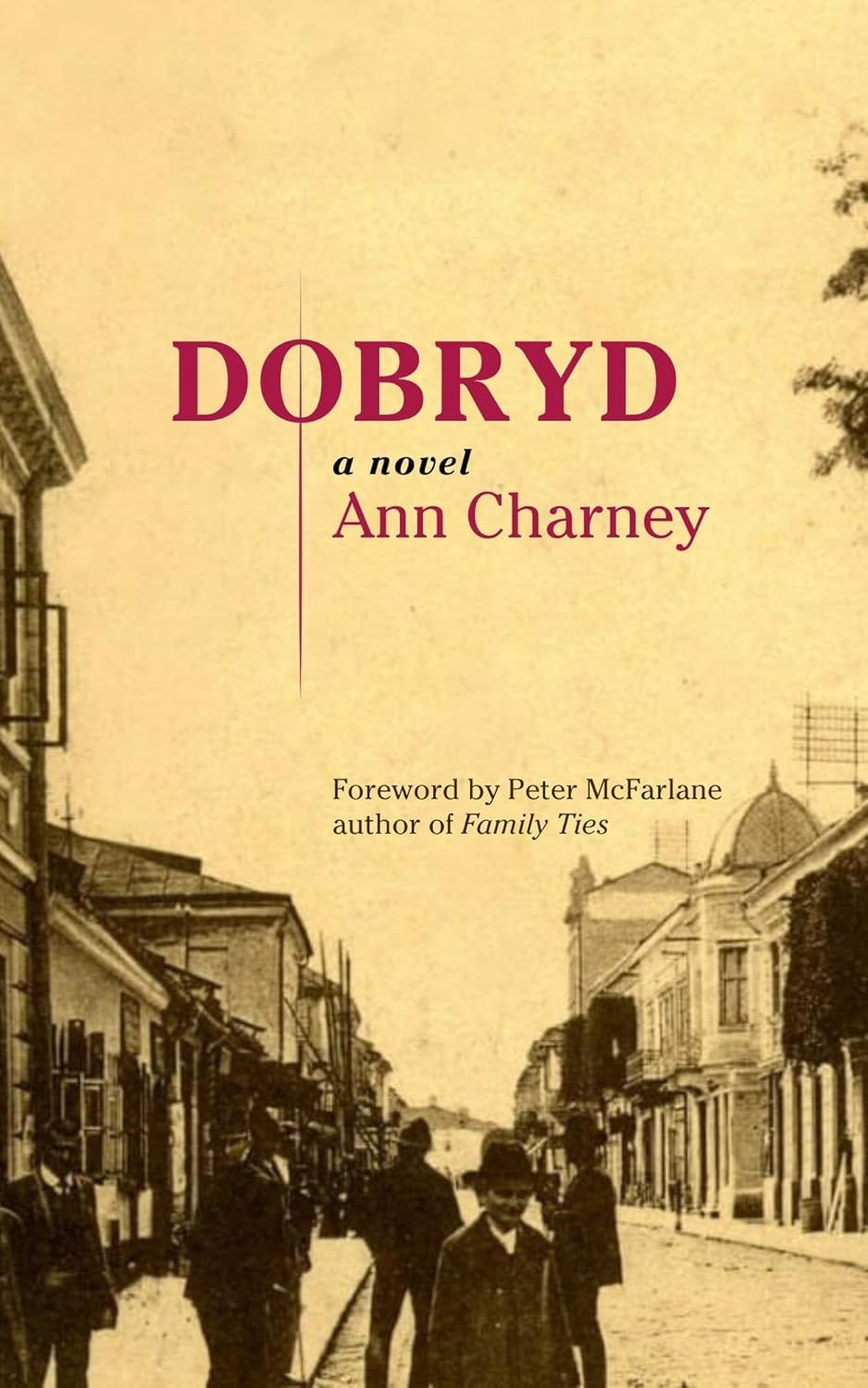DOBRYD by Ann Charney
Reviewed by Melanie Jackson
Brave, but scary, new world: Ann Charney’s riveting girlhood memoir of life in post-WW II Poland
From 1943-45, Ann Charney and her family hid from the Nazis in a Polish barn loft. On Russian soldiers’ arrival, they re-emerged into a confusing, still-treacherous landscape. The Canadian journalist/author’s stark, vivid 1973 memoir of that experience, DOBRYD, has now been reissued by Baraka Books.
Thanks no doubt in part to her journalistic background, Charney’s writing is both eloquent and spare. Her story stays with the reader—because everything she experiences, we feel.
Including the pain and discomfort of being crammed into the barn loft with other Jewish families. There was, Charney recalls, just enough space to sit or stretch out. “The slant of the roof did not permit any normal-sized adult to stand upright.”
On leaving the only place she knew, five-year-old Charney burst into terrified howls. A kind Russian soldier carried her out with soothing words. Not that she understood Russian, “but it felt good to listen to him and be near him. I was fascinated by his appearance—so different from the hollowed faces that I knew reflected my own.”
From the conflicting emotions Charney describes, we also feel her wonder at the unfamiliar outdoors. “A gentle wind touched my skin, my hair, with new, delicious sensations.”
On first publication, DOBRYD—the fictional name Charney gives her family’s village—won accolades in Europe, including comparisons with The Diary of Anne Frank. Yet, the book made barely a ripple in Canada and the United States. In his intro to this new edition, author/journalist Peter McFarlane comes up with an intriguing, and for 2025 readers, astonishing reason: Yuri, the kind Russian soldier.
In 1973, the ruling zeitgeist was Cold War suspicion of anything Russian. McFarlane cites the hero worship given Russian dissident Aleksandr Solzhenitsyn, whose The Gulag Archipelago detailed the horrors of Soviet prisons. The idea of a helpful Russian who brought a hard-up Polish family extra bread and tins of meat, not to mention companionship and encouragement? Nyet.
This is not to dismiss the achievements of the Nobel Prize-winning Solzhenitsyn1. Still, it does seem that folks in 1973 failed to achieve F. Scott Fitzgerald’s ideal of holding two contrary ideas at the same time. I.e., that all Russians except exiled dissidents ≠ bad Russians.
But back to DOBRYD, along with the hope that, this time round, more readers will appreciate Charney’s fascinating adventures. For example, once the family returned to (sort of) regular village life, her mother began making mysterious once-a-week trips to the university town of Lwow. Unlike most Poles, Charney’s matka had a travel pass, a perk of her job as translator for the Russian occupiers. She’d return loaded down with packages of jewelry, treats, clothes, and other gift delights. How’d she get them? The suspense for the reader is as intense as it was for young Charney. (No spoilers, except that the faint-of-heart need not fear: the explanation isn’t anything sordid.)
Then there’s Charney’s dual existence: learning to play—play? What could that be?—with other children while also maintaining a fantasy life. Hardly surprising: in her trapped-in-a-barn days, fantasy would have been a survival tool. “I grew up thinking that all children spent their time in this way, participating vigorously in an imaginary world that they actually experienced.”
Eventually, after difficulty, the family obtained visas and moved to Canada. By then, thanks to her mother, Charney had learned English. As always, hard-pressed but with never-say-die good humour, they used as a textbook Oscar Wilde’s Lady Windermere’s Fan.
About the Author
Ann Charney is a Montreal-based novelist, short story writer, and journalist who numbers among her awards being named an officer of the Ordre des arts et lettres in France. As well as Dobryd, her internationally published works include Life Class, Rousseau’s Garden, Distantly Related to Freud, and Defiance in Their Eyes.
The introduction to DOBRYD is by Peter McFarlane, an author, journalist, editor, and arts administrator.
About the Reviewer
A Vancouver free-lance writer/editor, Melanie Jackson is also the author of such middle-grade/young-adult suspensers as the Dinah Galloway Mystery Series (Orca). Other novels by Melanie include Medusa's Scream, named by the Canadian Children’s Book Centre as a Best Book, 2018. CCBC also awarded Melanie a TD-CCBC Book Week touring-author award.
Book Details
Publisher: Baraka Publishing, June 15, 2025
Language: English
Paperback: 216 pages. Also in EPUB and PDF formats.
ISBN: 9781771863995
Ironic note: in the 1980s, due to his anti-Semitic pronouncements, Solzhenitsyn fell from popular favour.





